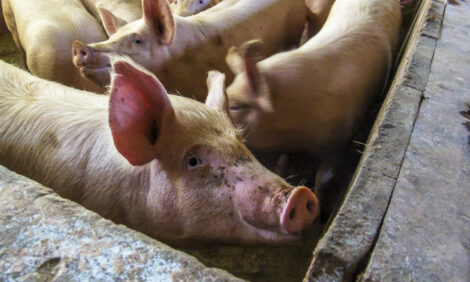



Immune Response to PRRSV Depends on Strain
SPAIN - Researchers of CReSA have demonstrated that inoculation with different porcine reproductive and respiratory syndrome virus (PRRSV) strains result in different virological and immunological outcomes and in different degrees of homologous and heterologous protection.One of the main obstacles for the development of new vaccines of greater efficacy against PRRSV is the limited understanding of the mechanisms involved in protection.
Up to now, most studies have focused on the development of neutralizing antibodies (NA) and virus-specific interferon-γ secreting cells (IFN-γ-SC) as the main correlates of protection although the precise role of these elements is not well understood. Cross-neutralszation experiments have shown that cross-reactivity between different PRRSV strains can be low and even some PRRSV strains seem not to induce a neutralizing response at all. Moreover, little is known about cell mediated responses in heterologous challenge models.
As a result, at present, it is impossible to predict the panel of strains or the characteristics of PRRSV isolates against which one pig is effectively protected after immunisation.
In the latest study at CReSA, researchers characterised the clinical and virological course and the evolution of neutralizing antibodies and interferon responses after inoculation with two PRRSV strains previously reported to be different. They evaluated the neutralising and IFN-γ-SC responses against a heterologous strain after immunization and we also tested the immunological responses after the homologous and heterologous challenges of previously immunised pigs.
Results showed that inoculation with different PRRSV strains result in different virological and immunological outcomes and in different degrees of homologous and heterologous protection.
With this data, it is clear that almost opposite models of immune response to PRRSV could exist depending on the strain: one based mainly in the development of NA with low IFN-γ responses, the other with predominance of IFN-γ responses and a poor development of NA.
Also, the study shows that in virological terms - but not based on zootechnical parameters - heterologous immunity sometimes could be more efficacious than the homologous one. This study contributes to emphasise the need for examining future PRRSV vaccines and PRRS immunopathogenesis studies considering the immunobiological diversity of PRRSV strains.
This paper has been published in Veterinary Research: Díaz I,, Gimeno M,, Darwich L,, Navarro N,, Kuzemtseva L,, López S,, Galindo I,, Segalés J,, Martín M,, Pujols J, and Mateu E. 2012. Characterization of homologous and heterologous adaptive immune responses in porcine reproductive and respiratory syndrome virus infection. Vet Res. 2012 Apr 19;43(1):30.
Further Reading
You can view the full report by clicking here.
Find out more information on PRRS by clicking here.








